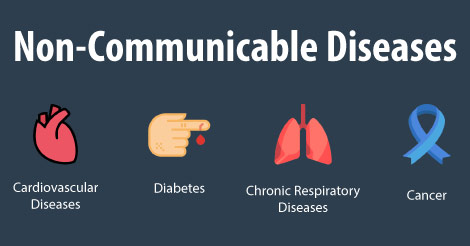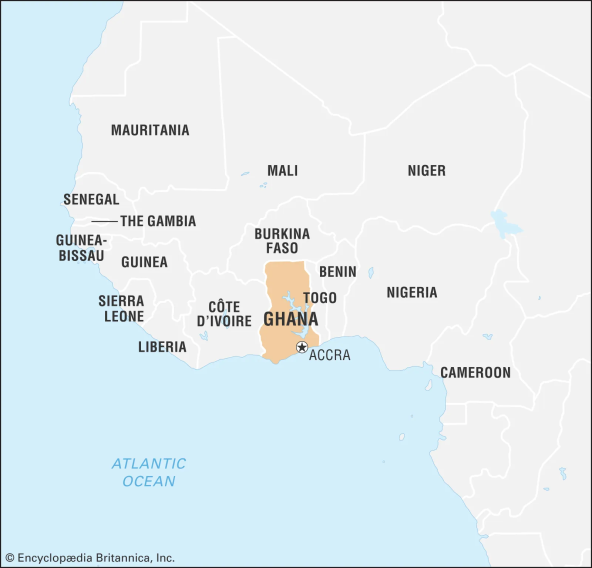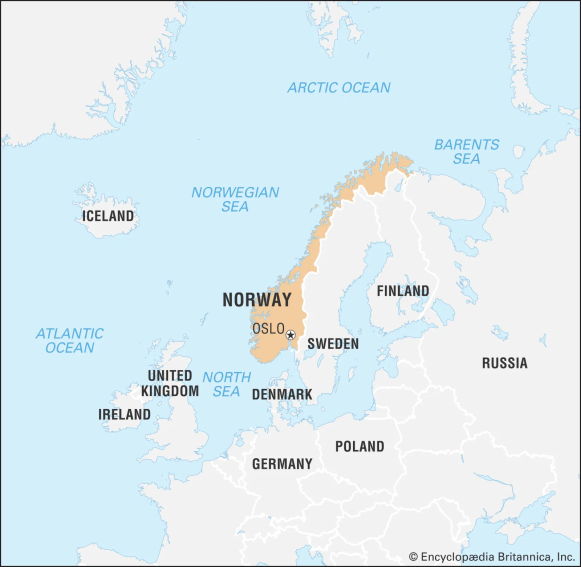Description

Copyright infringement not intended
Context - The Governments of Ghana and Norway joined hands to reduce Non-Communicable Disease deaths.


Copyright infringement not intended
Details
- World Health Organization (WHO) announced that a group comprising heads of governments has been formed to fast-track the goal to reduce premature death from non-communicable diseases (NCD) by a third.
- The first meeting of the ‘Global Compact on NCDs’ that will work for the reduction of preventable deaths from diabetes, cancer, heart and lung disease, and promote mental health and well-being, will be held in September 2022.
- NCDs are largely preventable and treatable; yet, the diseases kill 7 out of 10 people globally from risk factors like tobacco, alcohol, unhealthy diet, physical inactivity and air pollution.
- Global health highlighted that nearly 7 million lives could be saved for just $0.84 per person per year. This investment would provide a return of more than $230 billion as economic and societal benefits.
- The focus areas of the group will be:
- Implementing the most cost-effective measures to prevent and control NCDs.
- Ensuring that the people living with NCDs have access to the medicines and care they need during humanitarian emergencies.
- Integrating NCDs within primary health care and universal health coverage.
- Develop Comprehensive NCD surveillance and monitoring system.
- Engaging the people living with NCDs and mental health conditions in policy-making and programming.
World Health Organisation (WHO)
- WHO is a specialized agency of the United Nations. It is working for improving international public health.
- The WHO's working principle includes:
- Working worldwide to promote health.
- Keeping the world safe.
- Serve the vulnerable.
- It provides technical assistance to countries, sets international health standards, and collects data on global health issues.
- It also releases the World Health Report, which provides assessments of worldwide health topics.
- WHO also serves as a forum for discussions of health issues.
- WHO has played a leading role in the eradication of smallpox, the near-eradication of polio, and the development of the Covid-19 vaccine.
- Its current priorities include communicable diseases, particularly HIV/AIDS, Ebola, COVID-19, malaria and tuberculosis, etc.
- WHO Headquartered is in Geneva, Switzerland.
- It has 6 regional offices and 150 field offices worldwide.
Healthcare Status in India
- India has the dual burden of both communicable and non-communicable diseases and many of these diseases can be prevented by early diagnosis, providing health education, timely referral and management.
- Nearly 8 lakh cases of cancer are detected each year and around 60-80% of the cases are diagnosed late.
- Lack of awareness and poor health-seeking behaviour has been found to be the major underlying causes of many diseases.
- Inadequate Quality, Accessibility and Affordability of Health Services.
- High out of pocket expenses.
- Shortage of Infrastructure, Equipment and Skilled Manpower.
- Rigid regulatory Framework Combined with Corrupt enforcement.
- Primary Health Care Centres are not Present in many villages and wherever Present they lack basic facilities.
- Inefficiencies in Procurement Process result in both Shortages and Wastage.
- Nearly 70% of Healthcare delivery is through Private Players which are largely regulated.
- Lack of Sanitation, disease Surveillance, Political will and Public Health response.
- Government spend only 1.5% of GDP on Public Health Care.
- Rising incidence of non-Communicable diseases with income growth, lifestyle Changes and environmental degradation, resulting in a rising total burden of disease.
Steps were taken by the Government
- Promotion of Institutional deliveries through Cash incentive under Janani Suraksha Yojana.
- Janani Shishu Suraksha Karyakram: Free ante-natal Check-ups, Post-natal Care and treatment of Sick infants till one year of age.
- Providing Reproductive, Maternal, Newborn, Child and Adolescent Health Services, the establishment of Special Newborn Care Units.
- Mission Indradhnaush: Expanding full immunisation Coverage, the introduction of new vaccines.
- PM Swasthya Suraksha Yojana for strengthening the tertiary health Sector.
- POSHAN Abhiyaan to address Malnutrition.
- Iron and folic acid Supplementation for the Prevention of Anaemia, home visits by ASHAs to promote breastfeeding and promote the use of ORS and Zinc for the management of diarrhoea in children.
- Capacity building of Health Care Providers: Training is being conducted under the National Health Mission to build and upgrade the Skills of Health Care Providers.
- Medical Devices Rules, 2017: Transparent regulatory System, Ensure Safety and quality of medical devices, Allowed 100% FDI in medical devices Sector to Promote Make in India.
- National Health Resource Repository: Create a reliable, unified registry of the Country’s healthcare resources showing the distribution pattern of health facilities and Services between Cities and rural areas. ISRO is a technology Partner for providing data Security.
- Allowed 100% FDI in the Medical devices Sector to promote Make in India.
- Kayakalp initiative to Promote Cleanliness, hygiene and infection control practices in public health facilities.
National Health Policy 2017 targets
- Shifts From communicable to non-communicable diseases.
- Collaborating & regulating the private sector.
- A shift from Sick-care to wellness.
- Increase Life Expectancy at birth from 67.5 to 70 by 2025.
- Reduction of TFR to 2.1 at national and Sub-national levels by 2025.
- Reduce less than Five Mortality to 23 by 2025 and MMR from current levels to 100 by 2020.
- Reduce infant mortality rate to 28 by 2019.
- Reduce neonatal mortality to 16 and the stillbirth rate to “single-digit” by 2025.
- Reduce premature mortality from cardiovascular diseases, cancer, diabetes or chronic respiratory diseases by 25% by 2025.
Way Forward
- Reduce the Pressure on Secondary and tertiary hospitals by investing in Preventive and Primary Health Care facilities.
- Focus on Early detection and Prevention.
- Provide adequate protection to doctors.
- Increasing the Doctor-Patient ratio.
- Reduce Out of Pocket Expenditure.
- Increase the number of vaccines under Mission Indradhanush.
- Increasing the number of drugs and medical devices under price control.
- The Ministry Should Standardize the Cost of Certain treatments.
- Raising Public Health expenditure to 2.5% of GDP.
- Provide accessible, affordable and quality health care.
- Inform and educate people about the traditional Systems of medicine.
- Ayurveda Doctors and Yoga Teachers for Rural Areas.
- Improve Hospital access, Health worker density, and Access to essential medicine.
- Mobile Medical Units to Provide outreach Services in rural and remote areas.
https://www.downtoearth.org.in/news/governance/countries-join-hands-to-prevent-control-non-communicable-diseases-82374















